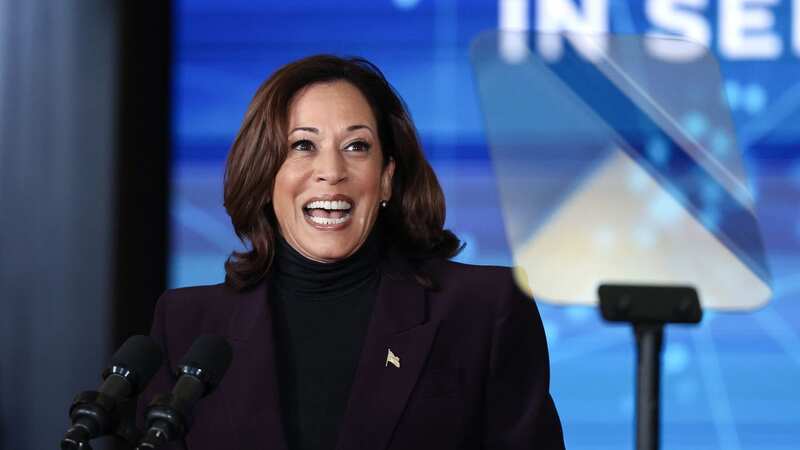US Vice-President warns AI is 'currently causing harm' in London speech

US Vice-President Kamala Harris has warned concerns about Artificial Inelligence must go beyond "existential" fears about threats of cyber attacks or bioweapons. Ahead of attending the UK's AI Safety Summit, she emphasised there are examples of the technology "currently causing harm".
In a speech at the US embassy in London, Ms Harris said: "When a senior is kicked off his healthcare plan because of a faulty AI algorithm, is that not existential for him? When a woman is threatened by an abusive partner with explicit deep fake photographs, is that not existential for her?
“When a young father is wrongfully imprisoned because of biased AI facial recognition, is that not existential for his family? And when people around the world cannot discern fact from fiction because of a flood of AI-enabled mis- and disinformation, I ask, is that not existential for democracy?"
Ms Harris said threats of cyber attacks and bioweapons “are, without question, profound, and demand global action”. "But let us be clear: there are additional threats that also demand our action, threats that are currently causing harm and which, to many people, also feel existential,” she added..
She will attend the AI Safety Summit at Bletchley Park, Bucks, in place of US President Joe Biden. French President Emmanuel Macron, Canadian Prime Minister Justin Trudeau and German Chancellor Olaf Scholz are also not expected to attend the two-day summit. Downing Street brushed off suggestions the Vice-President's speech could overshadow the summit - and denied the event was being snubbed by world leaders.
 Teachers, civil servants and train drivers walk out in biggest strike in decade
Teachers, civil servants and train drivers walk out in biggest strike in decade
King Charles gave an unexpected address in a video broadcast to the summit. He hailed AI as “one of the greatest technological leaps in the history of human endeavour” but warned we needed to make sure the technology remained "safe and secure".
"The rapid rise of powerful Artificial Intelligence is considered by many of the greatest thinkers of our age to be no less significant, no less important, than the discovery of electricity, the splitting of the atom, the creation of the World Wide Web, or even the harnessing of fire," he said. "However, if we are to realise the untold benefits of AI, then we must work together on combating its significant risks too."
Elon Musk arrived at the summit in the afternoon. The co-founder of OpenAI, the company behind the popular ChatGPT tool, will sit down with Rishi Sunak for a live interview tomorrow. Mr Musk, who is also the owner of Twitter and chief executive of Tesla, warned AI could pose an existential risk if it becomes "anti-human". "You can't just go and build a nuclear bomb in your backyard, that's against the law and you'll get thrown in prison if you do that. This is, I think, maybe more dangerous than a nuclear bomb,” he told the Joe Rogan Experience podcast ahead of the summit.
"We should be concerned about AI being anti-human. That is the thing that matters potentially. It is like letting a genie out of a bottle. It is like a magic genie that can make wishes come true except usually when they tell those stories that doesn't end well for the person who let the genie out of the bottle."
Technology Secretary Michelle Donelan said delegations from around the world attending the summit had agreed on the "Bletchley Declaration on AI Safety" as the starting point for a global conversation on the issue. She said the agreement was a "landmark achievement" which "lays the foundations for today's discussions". "It affirms the need to address these risks as they are the only way to safely unlock the extraordinary opportunities," she said.
Read more similar news:
Comments:
comments powered by Disqus

































